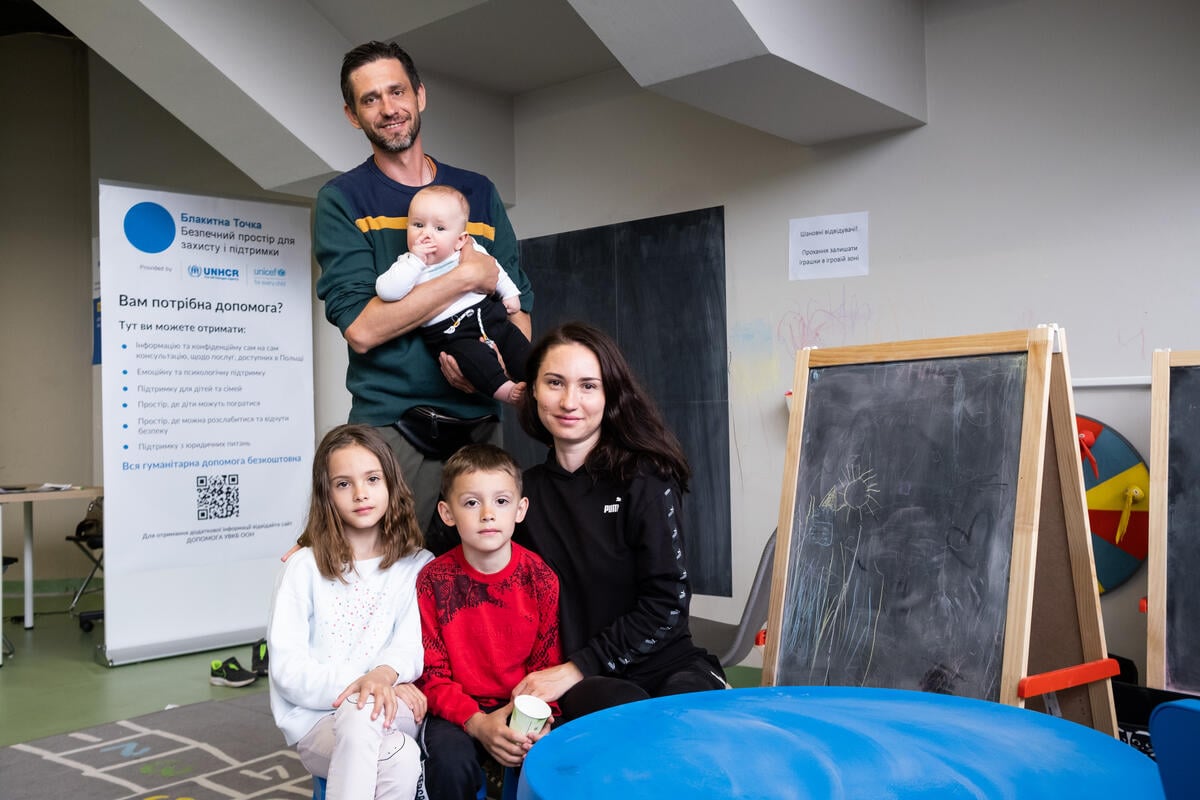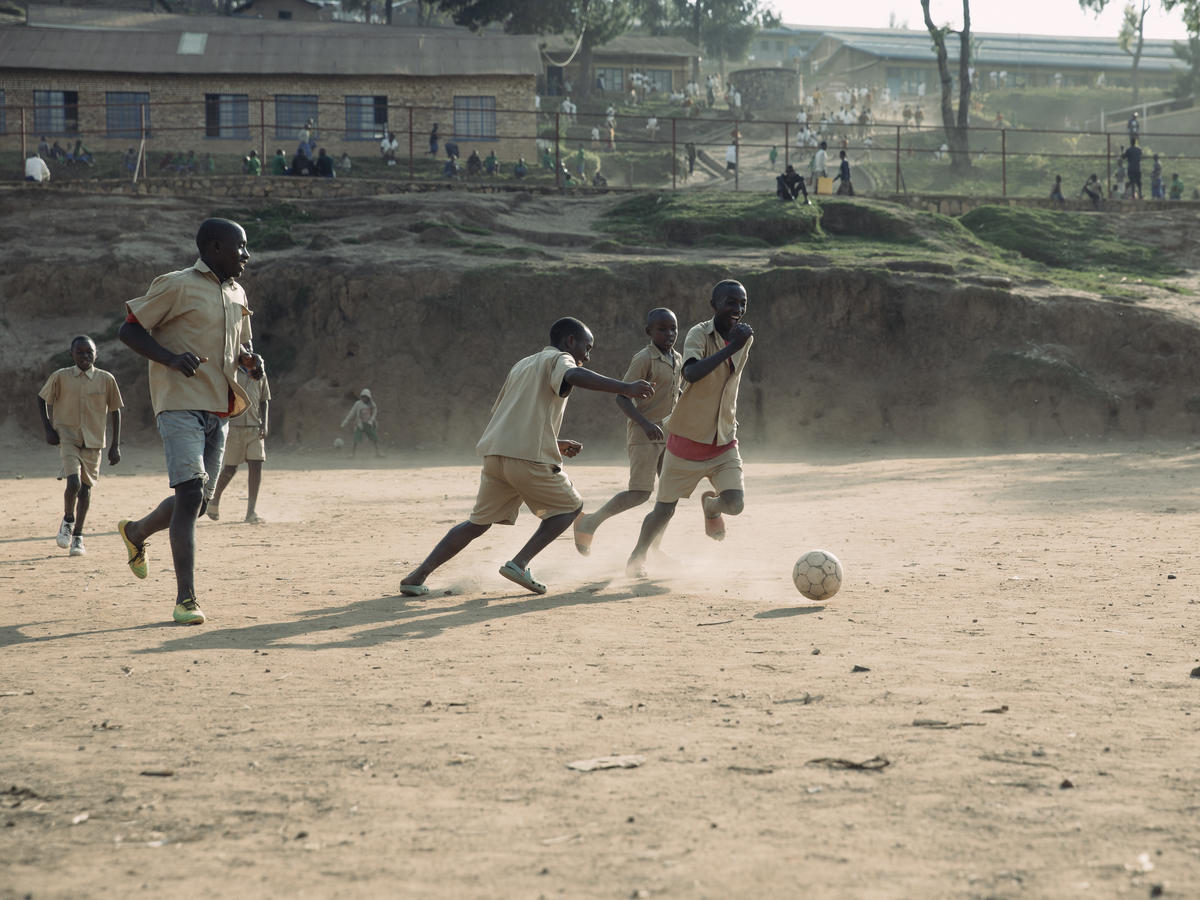UNHCR, ICRC and UNICEF help 103 abducted children
UNHCR, ICRC and UNICEF help 103 abducted children

ABECHE, Chad, November 1 - The UN refugee agency and two key partners have been busy over the past week responding to the urgent needs of 103 young children caught up in an abduction scandal in the eastern Chad town of Abéché.
The Chad authorities have detained and charged several Europeans, including members of the French aid agency Children Rescue/Zoe's Ark, in connection with the alleged abduction of the children, who are currently being looked after in Abéché's orphanage.
"The unusual circumstances surrounding the children's arrival in Abéché, required rapid action to ensure the protection of the children, including the immediate provision of adequate shelter and other items," UNHCR, the UN Children's Fund (UNICEF) and the International Committee of the Red Cross (ICRC) said in a joint press release issued on Thursday.
"Considering the young age of most of the children and their needs, the three agencies and their partners - including volunteers of the Chadian Red Cross - committed themselves to help the Chadian authorities by providing food, mattresses, blankets, soap, clothes, toys, hygiene articles and medicines amongst other supplies," the release added.
After the first arrests on October 25, the three agencies began to gather information on the identity, age and places of origin of the children. They interviewed the children individually and listened to their stories to gain preliminary information on their family backgrounds. This data will help trace the children's parents or relatives in order to reunify each child with his or her family.
The joint press release said the children included 21 girls and 82 boys aged between one-year-old and about 10. The interviews with the children had led to the preliminary conclusion that most probably come from Chadian villages near the towns of Adré and Tine along the Chadian-Sudanese border.
"The next step is to send teams to the border and to try and find their families in villages so that these children can be reunited.... Of course this will take time because these children are very young," UNHCR spokeswoman, Hélène Caux, said in Geneva. "It's very hard to have reliable information at the first interview - we might have to do other interviews."
During interviews with humanitarian staff, 91 children said they had been living with their family, consisting of at least one adult they considered to be their parent. Interviews with the remaining 12 children are under way to gather more information to trace their relatives.
The humanitarian agencies said they were closely monitoring the well-being and health of the children, which for the time being is considered satisfactory. Since their arrival, a few children have been treated for minor injuries.
The joint ICRC, UNHCR, UNICEF team, their partners and the local Chadian authorities "are combining all their efforts to establish a clear picture of the experiences the children had to endure, find out who they are and where they come from in order to find the appropriate solution for each child," said the press release, adding that the assistance provided to the local authorities was in accordance with the agencies' code of conduct, which requires impartiality and non-discrimination.
Collecting information to start tracing the children's families is a painstaking undertaking and particularly challenging considering the number of children, their young age and the prevailing situation in the region.
The aim of the agencies is to collect as much information as possible as quickly as possible, while at the same time stabilizing the psychological and emotional state of the children. "What we know about these children is that they have been very traumatized by what happened to them," said UNHCR's Caux. "It is extremely crucial to stabilize their mood and make them feel as if they are secure."
The preliminary information collected from the children, who are hosted under the responsibility of the Chadian authorities, needs to be first verified in the villages. The information has been shared with the government.
UNHCR, ICRC and UNICEF said that with the support of their partners they would over the coming weeks continue their efforts to find a quick and appropriate solution for each one of the 103 children to allow them to go back home, join their families and live a normal life.









